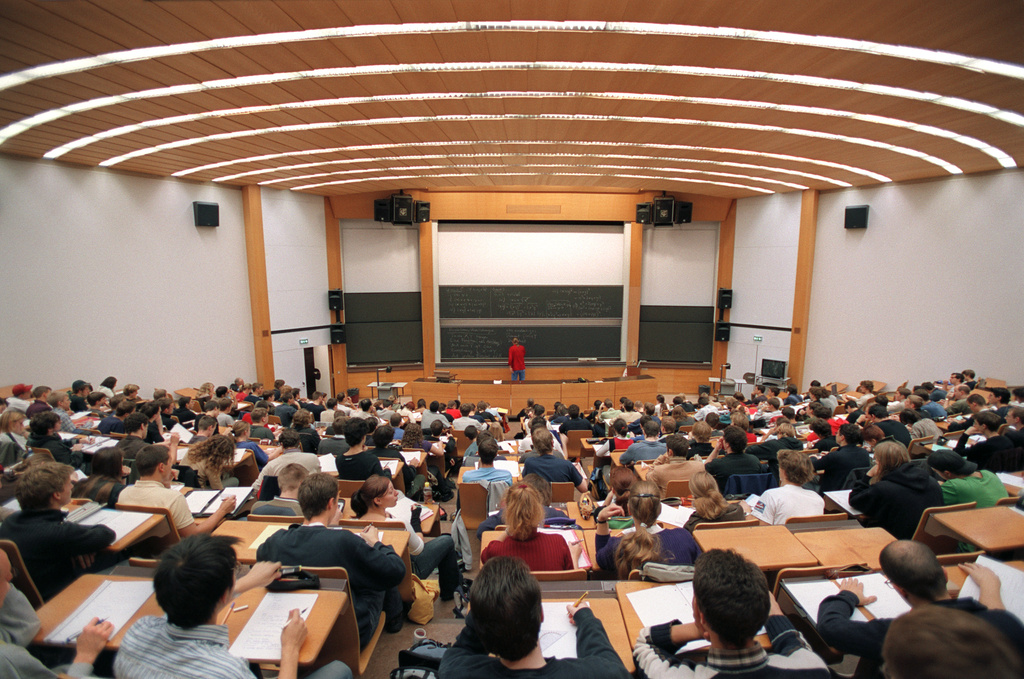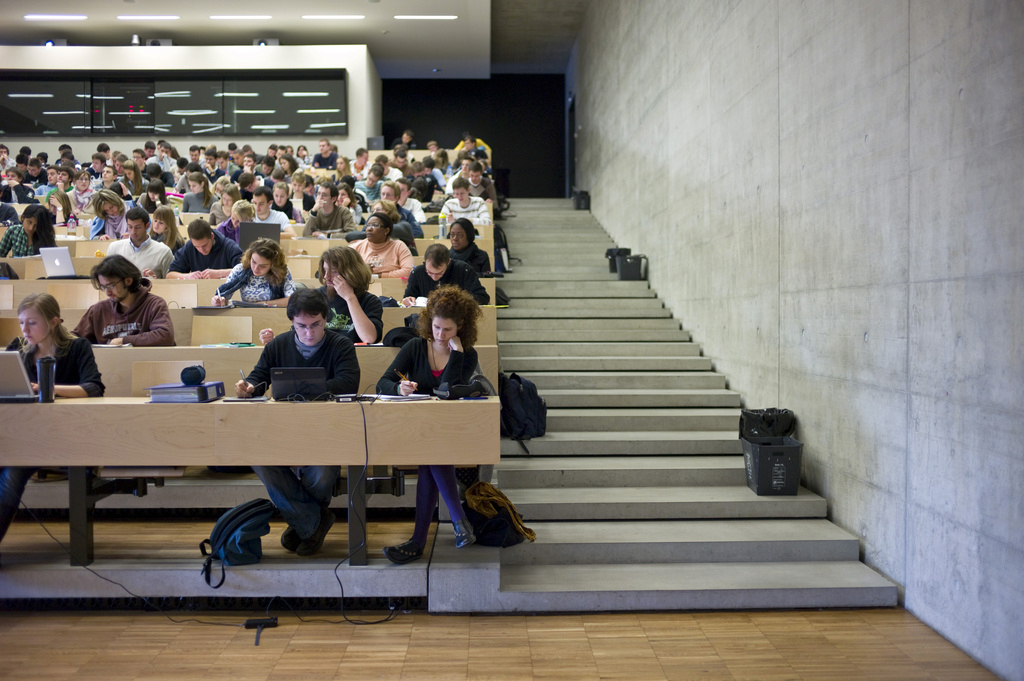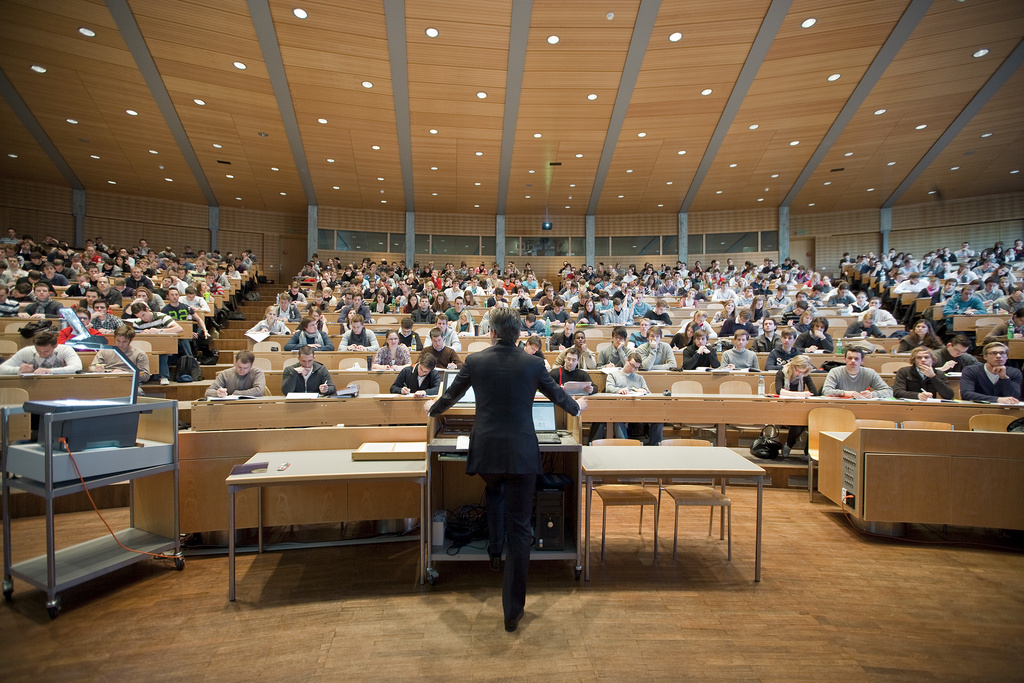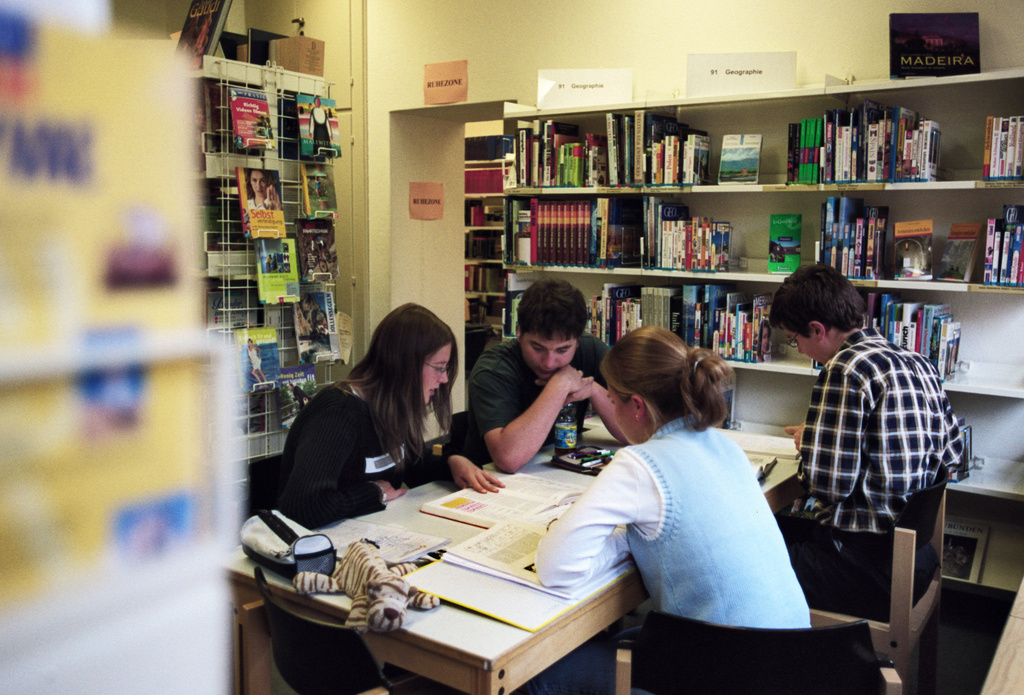Universities may apply foreign student quotas

Swiss universities may legally impose quotas on foreign students when there are not enough places, the Rectors’ Conference of Swiss Universities has confirmed.
At present only one university has such a quota, but several other institutions, especially in German-speaking Switzerland, are considering it. Higher fees for students from abroad may also be possible.
The rectors’ conference issued its expert opinion, by the lawyer and rector of Lucerne University Paul Richli, to institutes of higher learning at the end of last year, said the conference in a statement on Tuesday.
However, details of the document have only emerged in the public domain via media reports in the past few days.
“The expert opinion… already confirmed in December 2010 that the cantons responsible for universities and the Swiss Federal Institutes of Technology do not breach current international law when they limit admissions based on foreign school or study qualifications,” the statement said.
The text also makes clear that universities are not obliged to charge foreign students fees far below the actual cost of their studies.
No national quota
Conference secretary-general Mathias Stauffacher stressed that the body had neither recommended tightening admission criteria nor a national quota for foreign students.
Instead, the report had confirmed that the cantons – which are in charge of education – were allowed to increase admission hurdles for foreign students in times of need and in certain areas of study, he told the Swiss News Agency.
The rise in the number of foreign students has been the cause of much debate in Switzerland for fear this is putting pressure on university costs and domestic places. In 2006/7 foreigners accounted for 23 per cent of admissions; by 2010/11 this had risen to 27 per cent.
Until now only St Gallen University has imposed a quota – of 25 per cent – and there had been questions over its legality. Several other universities, mainly in the German-speaking part of the country, have been considering the move.
University reactions
The report has particular pertinence for the Federal Institute of Technology Zurich (ETHZ), which has been obliged to turn foreign applicants away from popular fields of study such as engineering and architecture.
“We can’t teach any more people, we don’t have the resources,” rector Heidi Wunderli-Allenspach told the Swiss News Agency.
She said the ETHZ, which is under the government aegis, has no formal legal basis for this decision – unlike the cantons – so the Richli report is welcome. The ETHZ has already applied to have the law changed, she added.
The greatest problem is at Masters level, with approximately double the number of applicants from abroad than from within Switzerland, she said. Most of the foreigners had to be rejected. They still, however, make up a third of students at this level.
Nevertheless, Wunderli-Allenspach dismissed having a formal fixed quota, as foreign students “make competition lively”.
The attitude towards foreign students seems a little more relaxed at the Federal Institute of Technology Lausanne (EPFL), in the French-speaking part of Switzerland, which has more than 40 per cent foreigners.
Spokesman Jérôme Grosse told Swiss television that the recruitment process was already complex, with strict criteria for each country. He also sees foreign students as creating chances.
“Many of them stay on after the end of their studies and start companies. Just to illustrate: around half of our young entrepreneurs who launch start-ups are foreign students,” he said.
No discrimination
For its part, the Swiss students’ union, which had already seen the Richli report a few months ago, said it welcomed the fact that the rectors’ conference did not make recommendations to the universities about whether they should implement quotas or not.
“We don’t really like quotas and we think it doesn’t make sense to have a national regulation on this,” board member Lorenz Bort told swissinfo.ch.
For the union, such a move would be discriminatory. Nor does it approve of raising fees for foreigners – which has been mooted in some quarters – as this would discriminate against the less wealthy.
Not every university has admissions problems, Bort added. “It exists in single universities and single fields of study and the issue shouldn’t become messed up with a general discussion about foreigners in Switzerland,” he said.
There have also been media reports that Swiss universities are facing an influx of German students because of lack of places in German universities – the result of a higher number of pupils finishing their end-of-school certificates and military service being abolished.
But the ETHZ’s rector Heidi Wunderli-Allenspach told the Swiss news agency that the institution did not expect a “dramatic influx”. Similar views have been reported at the universities of Basel and St Gallen.
It has been reported that some universities had tightened up admission for German students, but experts have advised against any “drastic” measures.
In the autumn semester 2010/11 there were 131,524 students matriculated in Swiss universities, according to the Federal Statistics Office, 3.6 per cent more than the year before.
Women made up 50 per cent. Around 27 per cent of students were foreigners.
The statistics office puts Lugano University at the top of the list for foreign students at 65.7 per cent. The lowest was Bern University at 13.1 per cent.
There are ten universities in Switzerland and two federal institutes of technology.

In compliance with the JTI standards
More: SWI swissinfo.ch certified by the Journalism Trust Initiative






You can find an overview of ongoing debates with our journalists here. Please join us!
If you want to start a conversation about a topic raised in this article or want to report factual errors, email us at english@swissinfo.ch.